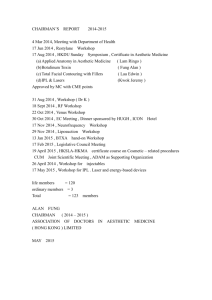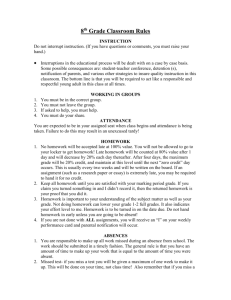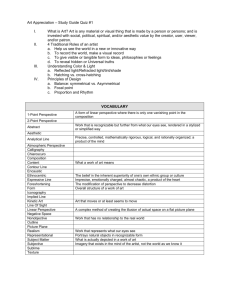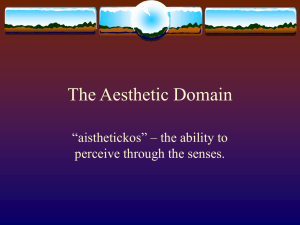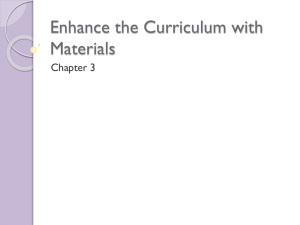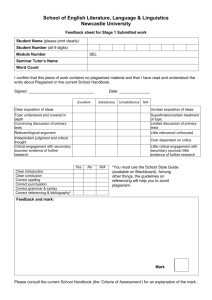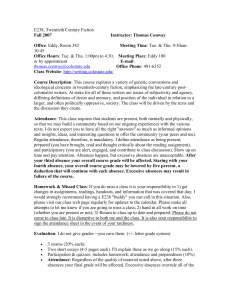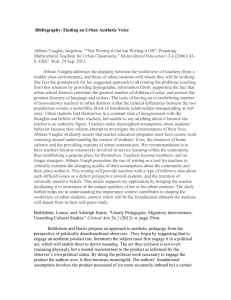City College of San Francisco - CCSF Humanities 41B
advertisement
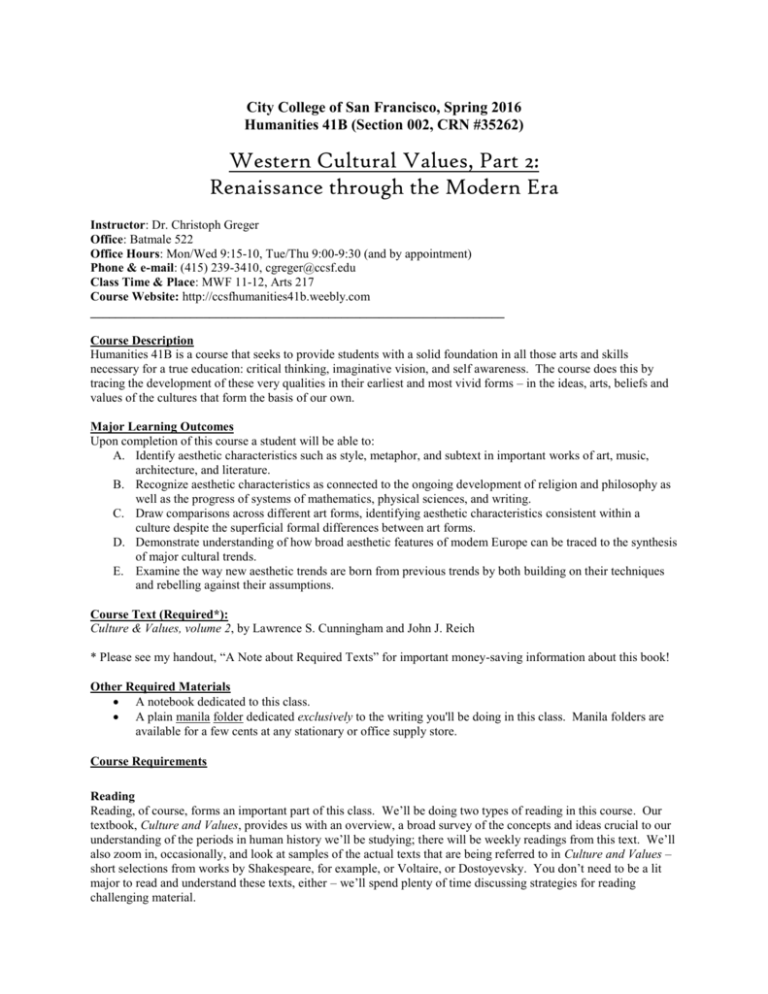
City College of San Francisco, Spring 2016 Humanities 41B (Section 002, CRN #35262) Western Cultural Values, Part 2: Renaissance through the Modern Era Instructor: Dr. Christoph Greger Office: Batmale 522 Office Hours: Mon/Wed 9:15-10, Tue/Thu 9:00-9:30 (and by appointment) Phone & e-mail: (415) 239-3410, cgreger@ccsf.edu Class Time & Place: MWF 11-12, Arts 217 Course Website: http://ccsfhumanities41b.weebly.com __________________________________________________________________ Course Description Humanities 41B is a course that seeks to provide students with a solid foundation in all those arts and skills necessary for a true education: critical thinking, imaginative vision, and self awareness. The course does this by tracing the development of these very qualities in their earliest and most vivid forms – in the ideas, arts, beliefs and values of the cultures that form the basis of our own. Major Learning Outcomes Upon completion of this course a student will be able to: A. Identify aesthetic characteristics such as style, metaphor, and subtext in important works of art, music, architecture, and literature. B. Recognize aesthetic characteristics as connected to the ongoing development of religion and philosophy as well as the progress of systems of mathematics, physical sciences, and writing. C. Draw comparisons across different art forms, identifying aesthetic characteristics consistent within a culture despite the superficial formal differences between art forms. D. Demonstrate understanding of how broad aesthetic features of modem Europe can be traced to the synthesis of major cultural trends. E. Examine the way new aesthetic trends are born from previous trends by both building on their techniques and rebelling against their assumptions. Course Text (Required*): Culture & Values, volume 2, by Lawrence S. Cunningham and John J. Reich * Please see my handout, “A Note about Required Texts” for important money-saving information about this book! Other Required Materials A notebook dedicated to this class. A plain manila folder dedicated exclusively to the writing you'll be doing in this class. Manila folders are available for a few cents at any stationary or office supply store. Course Requirements Reading Reading, of course, forms an important part of this class. We’ll be doing two types of reading in this course. Our textbook, Culture and Values, provides us with an overview, a broad survey of the concepts and ideas crucial to our understanding of the periods in human history we’ll be studying; there will be weekly readings from this text. We’ll also zoom in, occasionally, and look at samples of the actual texts that are being referred to in Culture and Values – short selections from works by Shakespeare, for example, or Voltaire, or Dostoyevsky. You don’t need to be a lit major to read and understand these texts, either – we’ll spend plenty of time discussing strategies for reading challenging material. Looking Much of the cultural expression that has survived from the earliest days of human civilization is visual – painting, pottery, sculpture and even architecture. Thus, we’ll need to spend some time learning to look, critically and questioningly, at these works of art. We’ll be doing this often in class, but you’ll be expected to do some serious looking for homework, as well. All of the images we discuss in class (and that you’ll be responsible for on quizzes and exams) will be on our course website, which will be expanded as we proceed down through the centuries. Listening We all know that music is one of the most powerful forms of cultural expression. Though we have some writing about the music that was such an important part of early societies, we don’t usually know what this music actually sounded like until the middle ages, when systems of musical notation were first used. So we won’t be doing much listening to music in the early part of the course, though it will form an important part of our studies of the Middle Ages during the second part of the course. As with reading and looking, we’ll spend considerable time learning how to listen to the music of other cultures. Writing You’ll be doing two types of writing in this course: Informal writing. Most commonly, you’ll be responding to the things we read, look at and listen to in a class journal. Sometimes you’ll be making journal entries at home for homework; most often we’ll be doing them in class, in response to an image or piece of music. Sometimes I’ll provide you with a prompt, asking you to look for something in particular, and sometimes I’ll simply ask you to respond in any way to anything that captures your attention about the text before us. I’ll be collecting your journals periodically throughout the semester – possibly without warning, so be sure to bring them to class every day. Though regular, well-organized journal entries are a requirement of this class, they are informal -- I’m not grading your journal entries for grammar or brilliance. Just show me that you’re a thoughtful, questioning and attentive student. Formal Writing. There will be two very short papers required for this class, one due a little before midterm and one at the end of the semester. I’ll give you specific prompts as well as detailed assignment sheets that explain what a good paper should do, as well as guidelines on how to do it. Though I expect these to be as polished and professional as possible, you don’t have to be an English major or art historian to get a good grade on them. Class Policies Attendance: The class will consist of three hours a week. Roll will be taken each class period. You can miss a maximum of six classes; after that, your grade may be affected. Note: If you miss class, you are still responsible for the day’s assignments. Pay attention to the schedule of assignments and talk to your classmates before or after class for info as to what went on. Tardiness and class etiquette: Our classes are short, so please be on time. If you arrive to class over 5 minutes late, I consider it a tardy attendance. If you step out of class for more than 5 minutes, I consider it a tardy attendance. Two tardies equal one absence. If you are late to class, come in quietly and ask any questions after class – be sure to let me know you came in late after class, too, so I can change your absence to a tardy! Ringers on mobile phones must be turned off during class, of course. Plagiarism: Paraphrasing or directly copying any text and using it as your own without proper attribution is plagiarism. Don't do it; I promise, it’s easy to spot. Plagiarism is a serious offense and will result in failure, and possibly even disciplinary action taken by the College. Course Grade Participation: Paper #1: Paper #2: Midterm: Final exam: 20% 15% 25% 15% 25 % (Attendance, class discussions, quizzes, keeping up with the reading, etc)

